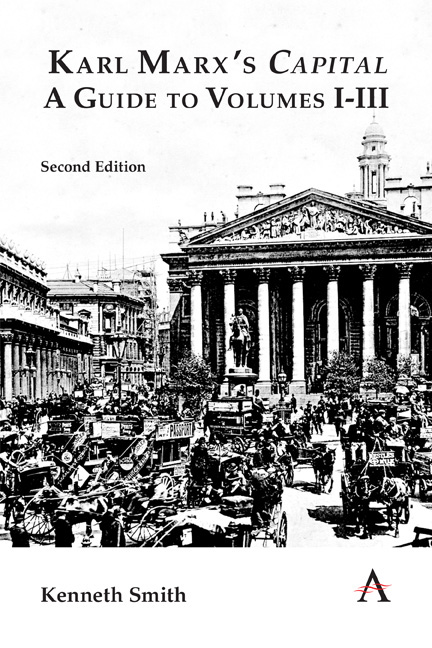Book contents
- Frontmatter
- Dedication
- Contents
- Preface to the Second Edition
- Introduction
- Part I The Development of the Capitalist Mode of Production
- Part II The Capitalist Mode of Production
- Part III The Underdevelopment of the Capitalist Mode of Production
- Part IV The Value Theory of Labour
- Conclusion to Part IV
- Conclusion
- Appendix: On Social Classes
- Notes
- Bibliography
- Index
Appendix: On Social Classes
Published online by Cambridge University Press: 17 April 2021
- Frontmatter
- Dedication
- Contents
- Preface to the Second Edition
- Introduction
- Part I The Development of the Capitalist Mode of Production
- Part II The Capitalist Mode of Production
- Part III The Underdevelopment of the Capitalist Mode of Production
- Part IV The Value Theory of Labour
- Conclusion to Part IV
- Conclusion
- Appendix: On Social Classes
- Notes
- Bibliography
- Index
Summary
I – Marx on Social Class in Capital, Vol. III (Part VI, Ch. 52 and elsewhere)
Apart from some additional ‘supplementary remarks’ added by Engels, Marx's short discussion of the concept of social class is the final chapter of Capital, Vol. III (Part VI, Ch. 52) and is in fact incomplete. The three volumes of Capital famously end with the words, ‘Here the manuscript breaks off ‘, added by Engels, perhaps to give the impression that Marx was working on the manuscript of Capital to the very end and died, with pen in his hand as it were, after a lifetime of intellectual labour. The fact that this chapter was never finished is sometimes presented as a tragedy comparable to the loss of Aristotle's Comedy: if only Marx had completed this section – and surely Engels could have put some pressure on him to do so – we would know exactly what Marx's views on social class were and there would be no need to debate the matter any further. But any such argument is absurd, firstly because it represents the Marxist concept of social class as an a-historical category – as something which is fixed for all time and unchanging from one social situation to another – and this could hardly be further from Marx and Engels's actual views on this question. And secondly because it ignores the fact that there are numerous other explanations of Marx and Engel's views on the subject of social class elsewhere (especially The Communist Manifesto, but also The Eighteenth Brumaire of Louis Napoleon, The Class Struggle in France and The Civil War in France), which give us a very good idea indeed of what their views on this very important concept were.
Because Chapter 52 of Capital, Vol. III is so short – it is in fact a mere 355 words long, apart from a footnote to the end of this chapter which is unimportant and which I will therefore leave out here – it is possible to quote this chapter in its entirety, as follows:
The owners merely of labour-power, owners of capital, and land-owners, whose respective sources of income are wages, profit and ground-rent, in other words, wage-labours, capitalists and land-owners, constitute the three big classes of modern society based upon the capitalist mode of production.
- Type
- Chapter
- Information
- Karl Marx's 'Capital': A Guide to Volumes I-III , pp. 179 - 191Publisher: Anthem PressPrint publication year: 2021



